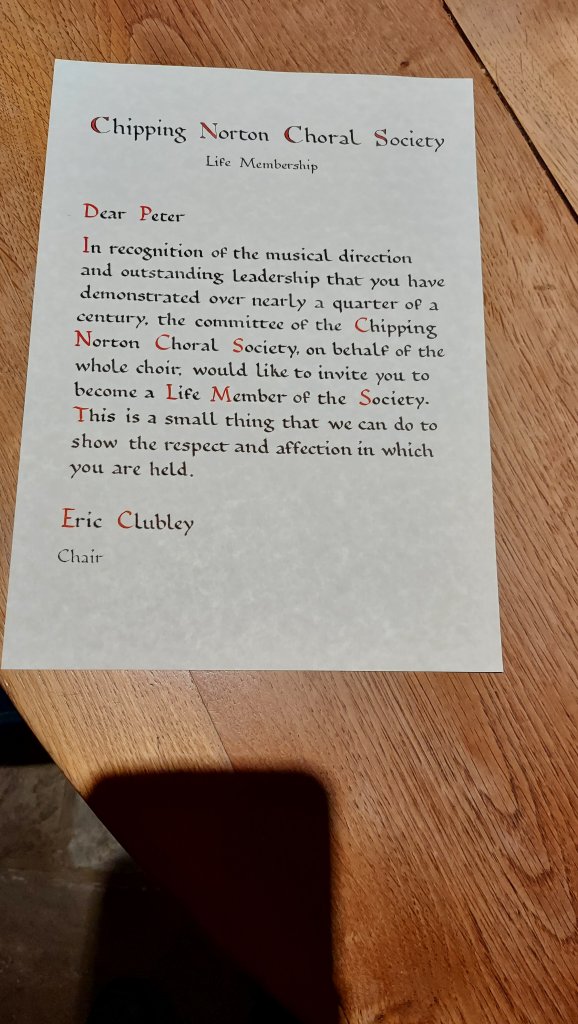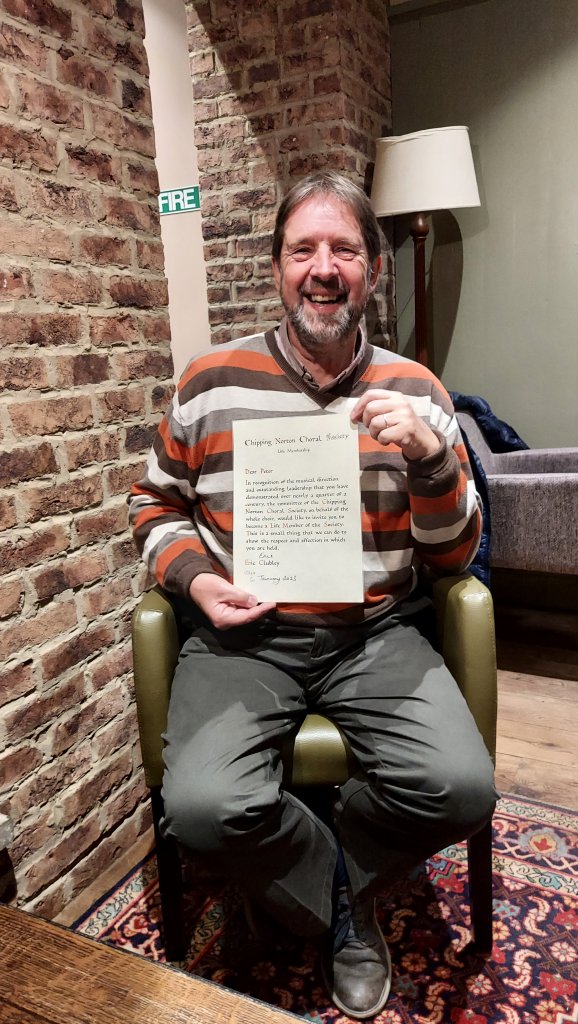What a great start to the term! A brilliant rehearsal doing some cracking music in the wonderful Town Hall, and some people had even marked up their scores – wahey! It was so lovely to see so many of you again, and to welcome our new members. I can already tell what a great term this will be.
What we did on Wednesday 4th January
We covered much of the first two movements – I. Selig sind and II. Denn alles Fleisch. We started with the opening melody in movement II, working on tuning, pronunciation, and character (note that Letters A-C are the same as F-H... yay!) Then we learnt the ‘mini fugue’ from bar 206, again drawing out a lot of character and energy, particularly on the “Freude”s at Letter I. It was great to do so much detail so early on – that’s what I’m expecting from you all this term.
After the break we sang through movement I; it was a very admirable run, particularly for those who haven’t seen it before, and I asked you to remember how it felt so we can look back after the concert and you can see the incredible progress we make! We then did loads of detailed work on the opening, getting the pronunciation of the German correct, as well as the odd bit of note bashing where it’s hard, such as at Letter B. Good work on the energy at bar 55, and where it comes again in bar 88.
What we will do on Wednesday 11th January
We’ll start by running through the opening of movement I, before working on the ending section where we got to last week (bar 100, top of page 8). After this we’ll look at Letter C in movement II, and put it together with the first section. After the break, we’ll work from Letter K to the end in movement II, nailing the whole of the movement.
As a heads up, I’d like to do movement II in the Music Festival this year... more on that in a few weeks, but this will be the one to practice!
If you hired scores from Christmas and haven’t given them back, please bring them this week, otherwise the Committee will have to start chasing people!
Breathe Workshop – Saturday 7th January
A great success! Thank you to the 40 or so who signed up and joined us for the afternoon. I hope you found it very insightful and helpful, and you can start applying those exercises and techniques to the Brahms. Thank you of course to Rowena for accompanying, to the Committee for their organising expertise, Naomi and Sarah for looking after the teas/coffees all afternoon, and the cake makers/bringers for the amount of wonderful food we had. It’s so great to be able to put these days on where we all get so much out of it and come away so happy.
Charlotte will be posting on Facebook soon (if it’s not already up), so keep an eye out there.
Marked Scores
As with last week, the first 2 movements are here. I’ll be sending out the next movements next week, so make sure these are all in by then... otherwise it’s double the workload!
Recommended Recordings
There are many fabulous recordings of this piece, including this one by the late great Bernard Haitink.
However, we’re doing an incredible version for chamber orchestra, with our friends from the Adderbury Ensemble. In this chamber arrangement, the arranger (Joachim Linckelmann) keeps all of the wonderful colours and atmospheres of the original orchestration, but reduces the orchestra to a manageable size. This is my recommended recording, and you can listen HERE.
Learning Resources
Fortunately, there are plenty of resources out there to assist you in your learning – please take the time to listen to the learning tracks, and to digest this piece properly; it’s tricky, and you’ll need to be on it.
Pronunciation Guide
We’ll be doing lots of work on the German pronunciation, and will be getting some coaching through the rehearsals too. However, you can make a good head-start on it by listening to this Pronunciation Guide.
Chord Perfect
These learning tracks are great as they are real singers amplified for the respective voice parts! It may help you to have real singers leading your learning, and it’s free! Just be aware that the ‘wobble’ on each voice can be quite pronounced (great for Brahms, but can lead to slightly flat singing if you slow it down).
Soprano
Alto
Tenor
Bass 1
Bass 2
John Fletcher Music
Another great aid in learning, particularly as you can isolate your part or have all parts together. The sound is clear and easy to pick up, but it doesn’t do text. Check it out here.
Choralia
The most flexible option here as you can speed it up/slow it down, get certain voices to become more prominent, and it has a click track to help you keep in time. However, it’s the most rudimentary sound of the lot, so try not to sound too ‘computer-like’. Have a look.
This is by no means an exhaustive list, so if you find these don’t help then feel free to do your own digging. The most important thing is that you engage with this, and put the time in at home to learn it. We all saw the difference it made over 3 days for the Christmas concert... imagine how incredible you’ll sound if you start now!
Peter’s Presentation
In Eric’s words: “On Saturday, a small group of Committee members presented Peter with his Life Membership Certificate. For the benefit of our new members, Peter was MD for 24 years before he moved to Devon last year, when we appointed Ben. He is one of a select few Life Members, but in view of the special place he occupies in the recent history of the choir, we had it produced by a professional calligrapher – Rachel’s, one of our new Altos, mother. I think you’ll agree she has done an outstanding job. Peter was, as you’d expect, delighted and has sent me a note saying he has been deeply touched and feels honoured.”


This Week’s listening
Everyone at the Breathe workshop seemed to enjoy singing Anton Bruckner’s Locus Iste so much that I thought I’d share with you my favourite of the group of unaccompanied motets he wrote: Os justi. You can hear this stunningly beautiful piece, performed by the incredible Tenebrae, HERE.
See you on Wednesday 11th.
– Ben
